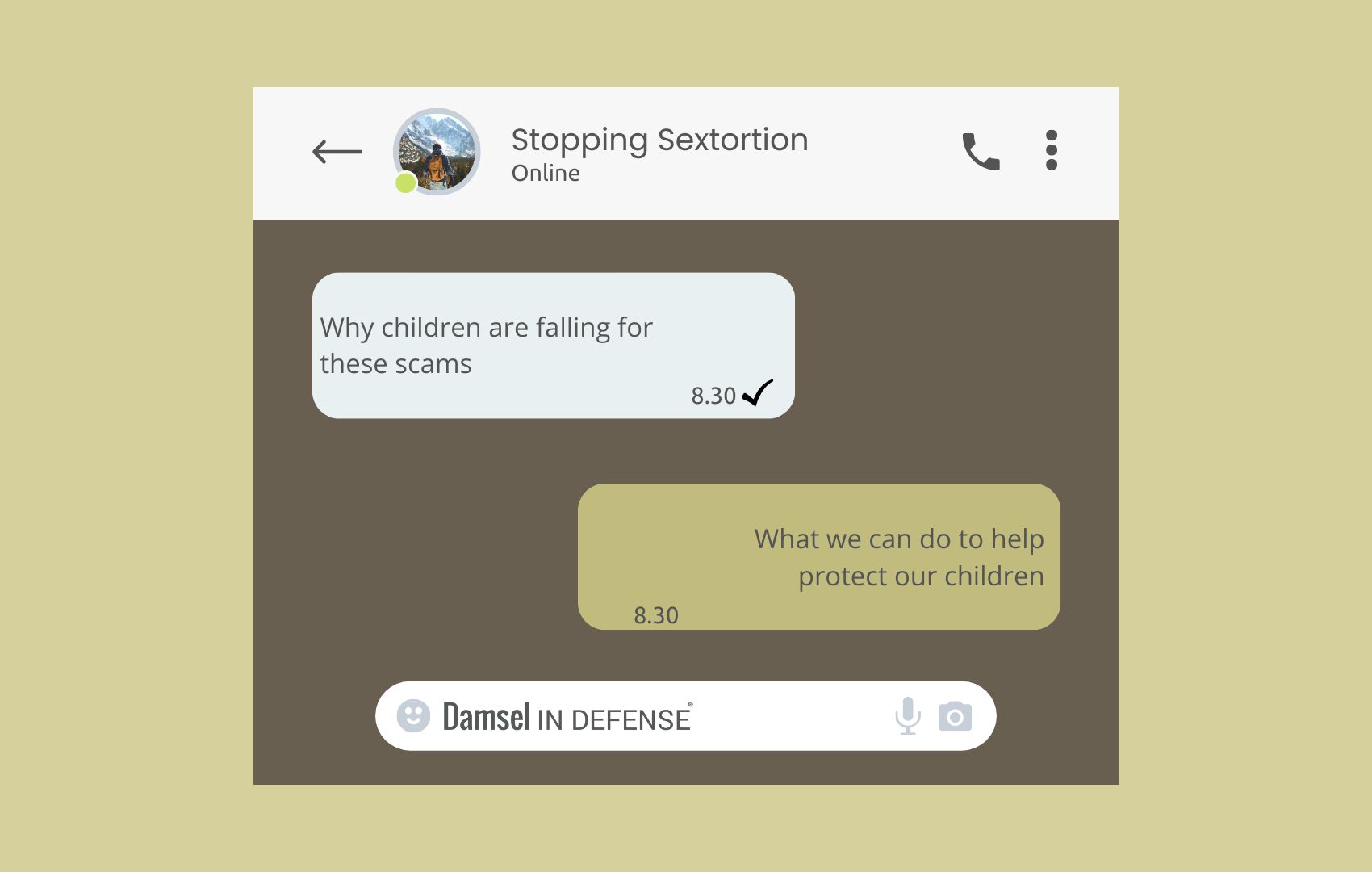
Many of us grew up with the “Stranger Danger” concept – the idea that we should be weary of strangers who come up to us and make random requests or offer us something. For example, we were taught to stay away from men in vans offering candy or adults who asked for help searching for a lost dog. While this can still be somewhat relevant, the addition of technology has deeply affected this idea of “Stranger Danger” and has taken it to a whole new level.
It was a beautiful summer night. Gavin Guffey, a 17 year old from South Carolina, received a DM (Direct Message) from who he thought was a gorgeous woman on Instagram. Less than two hours later, he committed suicide. Why? The “gorgeous woman” turned out to be a Nigerian cyber criminal group that targets young children online. This specific criminal “catfished” Gavin into sending explicit pictures then threatened to share them with his friends and family if he did not send money and when Gavin could not, the criminal encouraged the suicide.
Cyber-criminal’s tactics can range from asking for explicit pictures to claiming they already have explicit content to forcing the vulnerable to commit acts of self-harm or disturbing sex-related crimes all for financial gain or sexual gratification. One of these groups include the “Yahoo Boys” who are based out of Nigeria and switched to sextortion, elder fraud, and fake job scams after the “Nigerian Prince” scam became known worldwide. Another is the “764” which is based in the United States and abroad with the intent to gain sexual gratification rather than just financial.
No matter who is on the other side of the screen, these criminals are heartless, soulless individuals who show no empathy for their victims. Such as in the case of Gavin, his family was taunted relentlessly after Gavin’s death and the scammer tried to get them to fall for the scam as well. Sextortion is no joke and the addition of AI has made this more terrifying as scammers no longer even need a picture but can AI generate explicit content with a victim’s face.
So how do we stop this, and how can we protect our children?
Boys aged 14-17 are the most often targeted; however, young girls have also been targeted and some as young as 8 years old have committed suicide due to these scams. Parents need to take charge and begin defending their children the best they can by limiting internet access and having the important conversations prior to giving their children free reign on the internet.
First, the best protection is severely limiting internet access. In a practical sense, it looks like not allowing children on games such as Roblox, platforms such as Xbox Live, or Discord without any restrictions, and not allowing social media. Even “private” social media accounts receive DM requests and this can intrigue your child by the lure of someone new.
We then highly recommend setting up restrictions on all accessible internet platforms. For example, you can add child internet monitoring services to all technology and set parental controls for all streaming platforms as well.
The most important step here is keeping communication lines open. While the reasons vary on why children fall for these scams, there are three entry points that are typically used by the scammers. These include compliments/flattery/promise of a relationship, offer of exchange for something your child values such as game currency/new smartphone/gift cards, or threats right out of the gate. Even if you believe your child would never fall for something like this, remember that children are human – they will make mistakes – and may fall into this trap without a second thought. This is why it is crucial to talk to your children prior to allowing internet access or even talking to them now about the issue. Per fbi.gov, you can talk to your child using one of these 30 second conversation starters:
The New Version of Don’t Talk to Strangers
– When you’re online, has anyone you don’t know ever tried to contact or talk to you?
– What did you do or what would you do if that happened?
– Why do you think someone would want to reach a kid online?
– You know, it’s easy to pretend to be someone you’re not online and not every person is a good person. Make sure you block or ignore anything that comes in from someone you don’t know in real life.
The Power of a Picture
– Has anyone you know ever sent a picture of themselves that got passed around school or a team or club?
– What’s possible anytime you send someone a picture?
– What if that picture were embarrassing?
– Can you think about how someone could use that kind of picture against a person?
I’m Here to Help
– I read an article today about kids being pressured to send images and videos of their bodies to a person they met online. Have you ever heard about anything like that?
– Sometimes they were being threatened and harassed—scary stuff.
– You know, if you are ever feeling like something is going on—online or off—that feels scary or wrong or over your head, my first concern is going to be helping you. You can always come to me.
If you are unsure if your child would truly come to you in the event of this happening, we highly recommend ensuring that your child has a secondary trusted adult they can go to or you can even point them directly to the FBI. Let your child know that even if they are not ready to tell you, they can help save lives by reporting the incident to 1-800-Call-FBI or report the crime online at tips.fbi.gov. We also recommend sharing this link and having your child make it accessible: https://www.fbi.gov/how-we-can-help-you/scams-and-safety/common-frauds-and-scams/sextortion. This link has a list of what kids and teens need to know about sextortion and encourages them to talk to their parent(s)/guardian(s) about the issue.
If you are unsure about how to approach your child about shielding their eyes and hearts from these scams, you can also begin the conversation early with the help of our Safe Hearts book, Shielded Eyes, Shielded Hearts alongside our Proactive Parent Guide. It’s time to step up and learn to teach your child how to safely navigate the world of technology so they are set up for future success.
Reach out to your local Damsel Safety Educator here for more kid-versation books and tools on how to protect your child!



